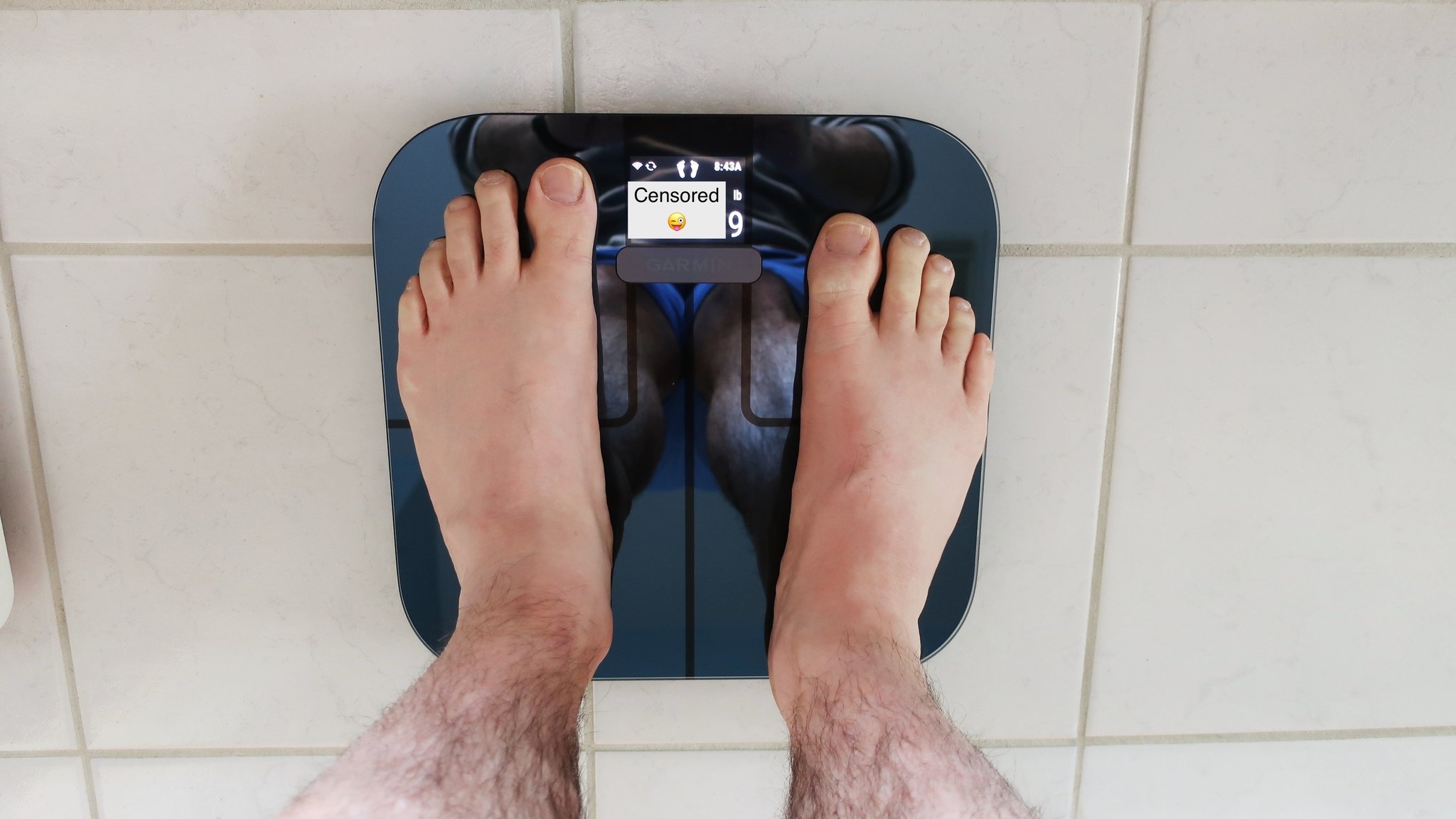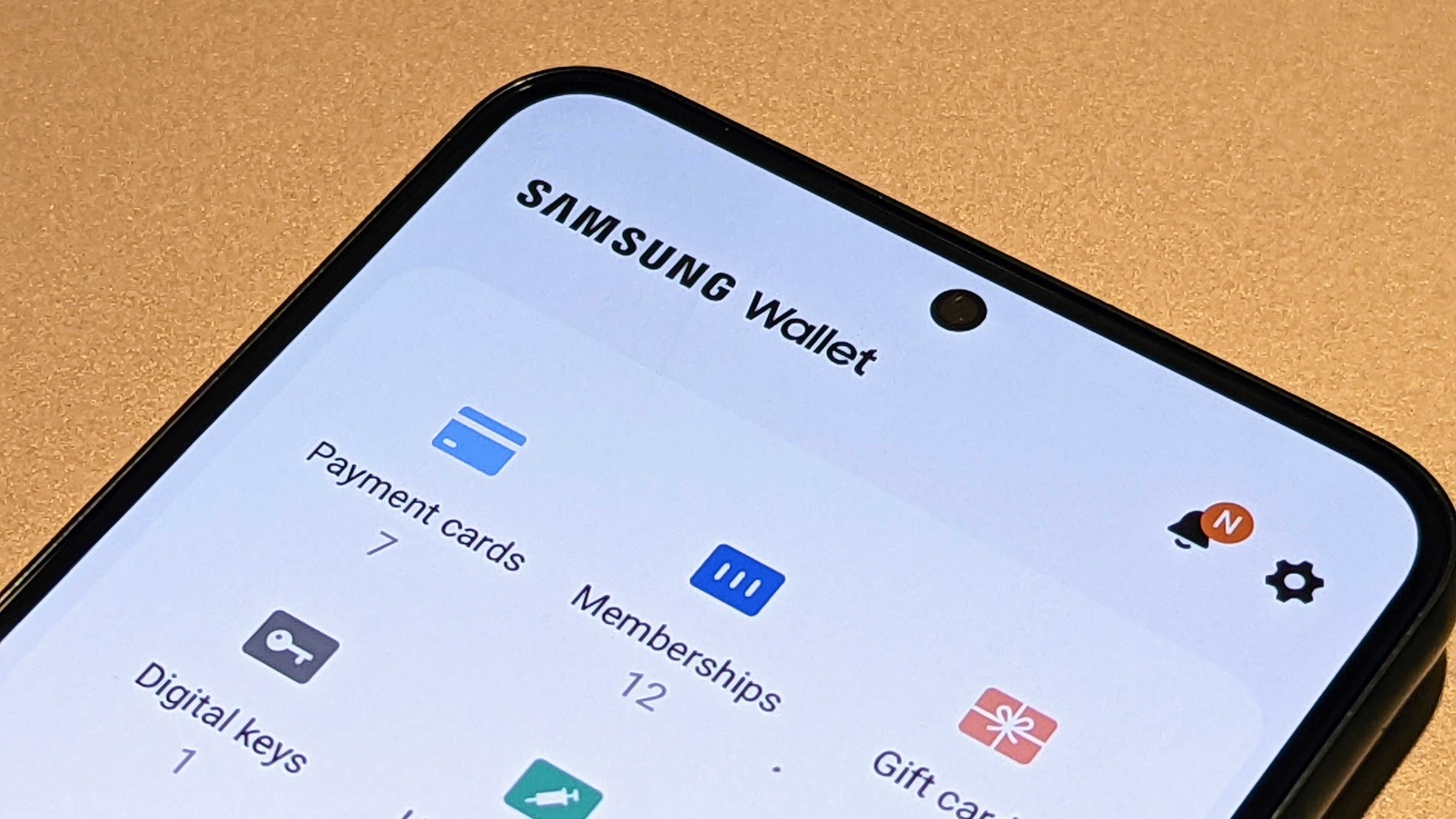Android Central Verdict
Bottom line: The Garmin Index S2 Smart Scale is one of the best smart scales we've tested. It packs a ton of useful features, is heavily customizable, and works for large families or small armies. The only problem is that you can get most of the benefits from competitors for much less. However, if you're invested in Garmin, you can't really go wrong here.
Pros
- +
Delivers tons of useful health data
- +
Setup and use is a breeze
- +
Can accommodate up to 16 concurrent users
- +
Works with Google Fit and Apple Health
Cons
- -
Smudge magnet
- -
Expensive compared to the competition
- -
Not ideal for Samsung or Fitbit users
Why you can trust Android Central
The start of a new year is often filled with promises to start anew, to have a more positive attitude, and to do better than you did the year before. It's no wonder then that for many, these goals often include getting more active and/or losing weight. So when I had the chance to write this Garmin Index S2 Smart Scale review late last year, I fully intended to approach the task with all the gusto of a new year's resolution. But then, like most resolutions, I sort of dropped the ball.
Luckily after a crazy January, I got my second wind and committed to making better health and lifestyle choices. This included measuring and keeping track of things like my weight, body mass index (BMI), and other important body metrics. I've used some of the other best smart scales in the past, but like most diets, I didn't always stick with them. However, after just a week or so of using the Garmin Index S2, I think I can finally commit. Not only that, but this smart scale might just be enough to pull me from my beloved Fitbits into wearing a Garmin smartwatch on a regular basis!
Garmin Index S2 Smart Scale Price and availability
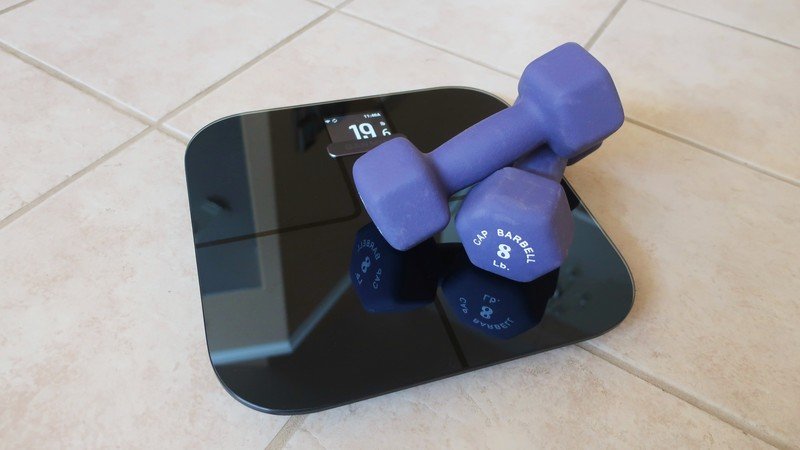
The Index S2 made its debut in mid-October 2020 at a retail price of $150, which it has maintained as of this review. The S2 replaces the previous Index model, which Garmin sold for nearly five years. It added a color display and a few more metrics and customizations. The S2 remains one of the more expensive smart scales on the market in early 2021.
So many metrics!
Garmin Index S2 Smart Scale: What I like
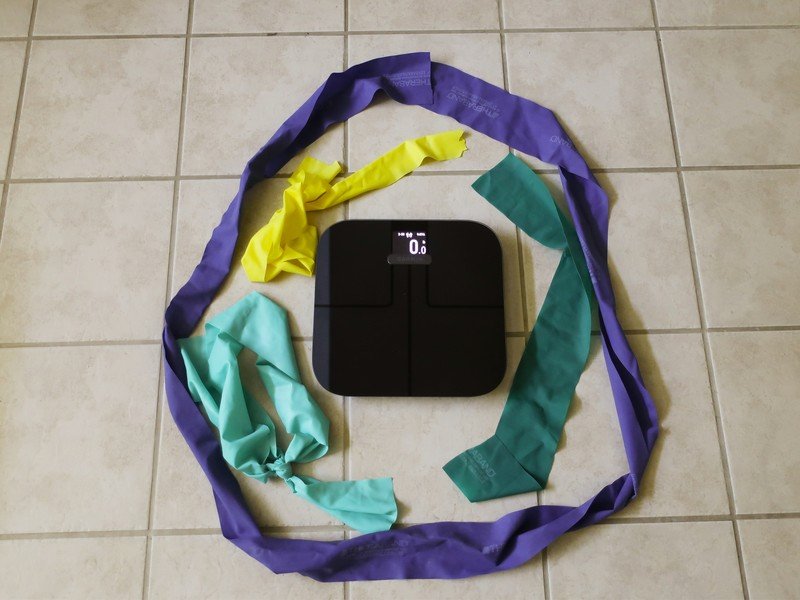
My initial impression of unboxing and setting up the Garmin Index S2 set the tone for the positive experiences that followed. Once I installed the four AA batteries (which were included) and opened the Garmin Connect app, it only took a few clicks and a few minutes to get up and running. It was far-and-away faster and easier than when I set up my Fitbit Aria scale a few years ago. With its complicated local Wi-Fi setup process, that experience nearly had me return the device, but there was none of that frustration with the Index S2.
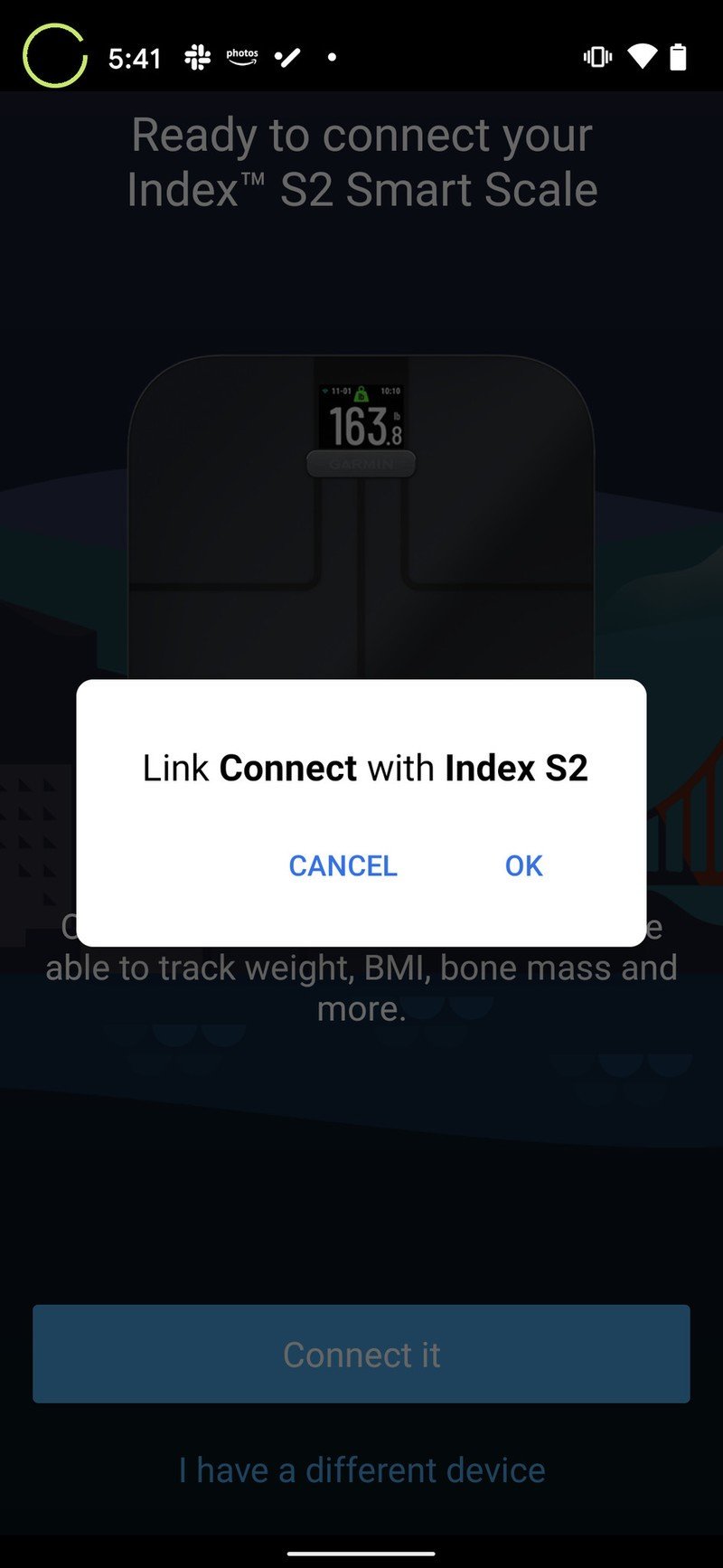
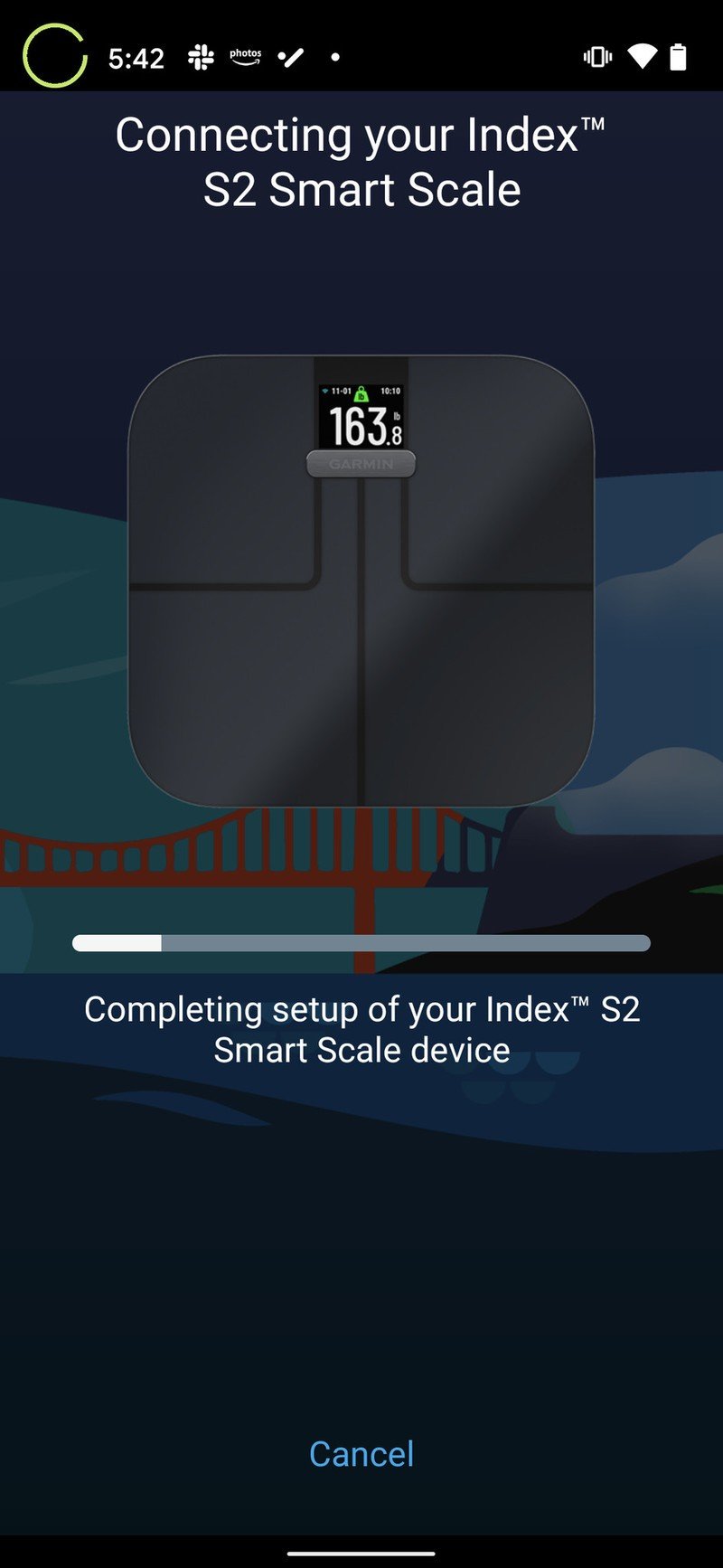
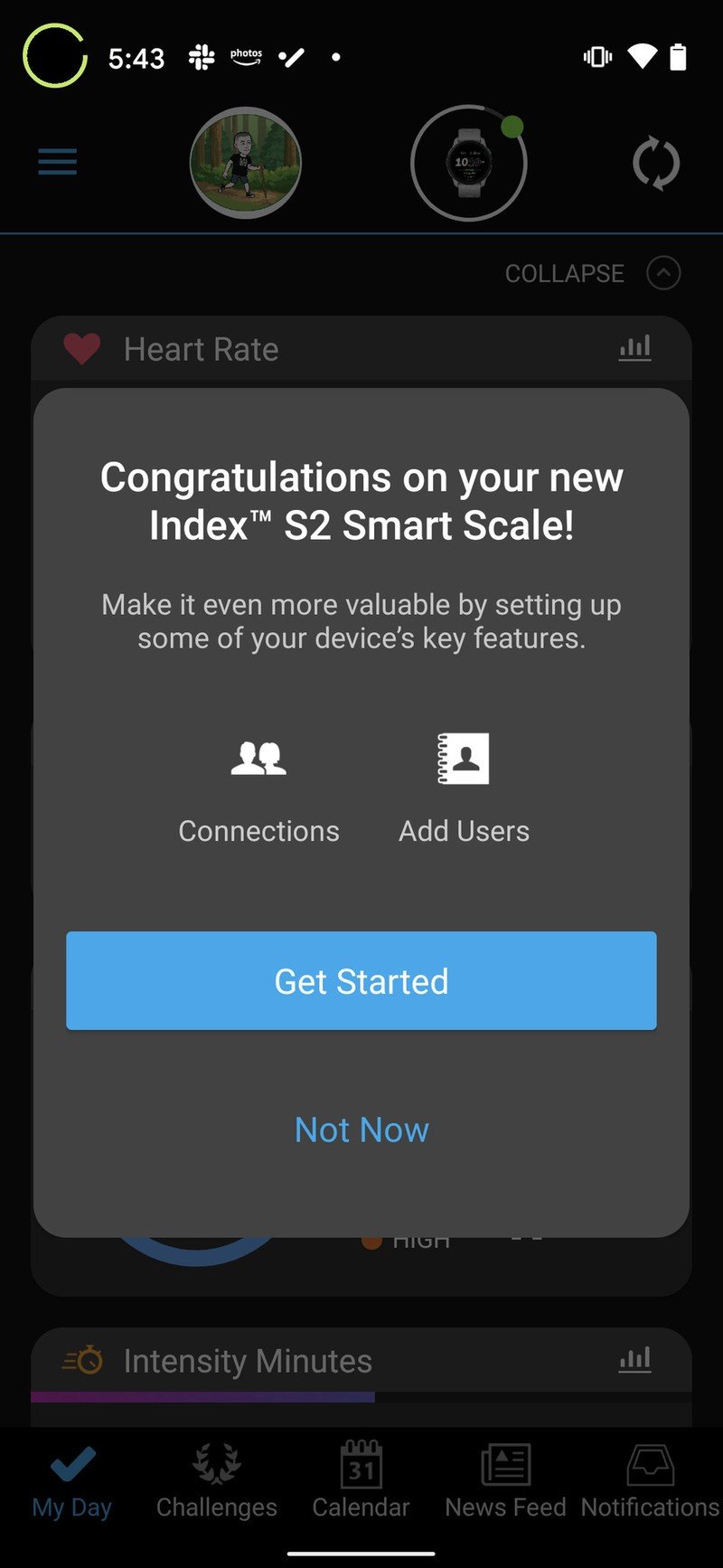
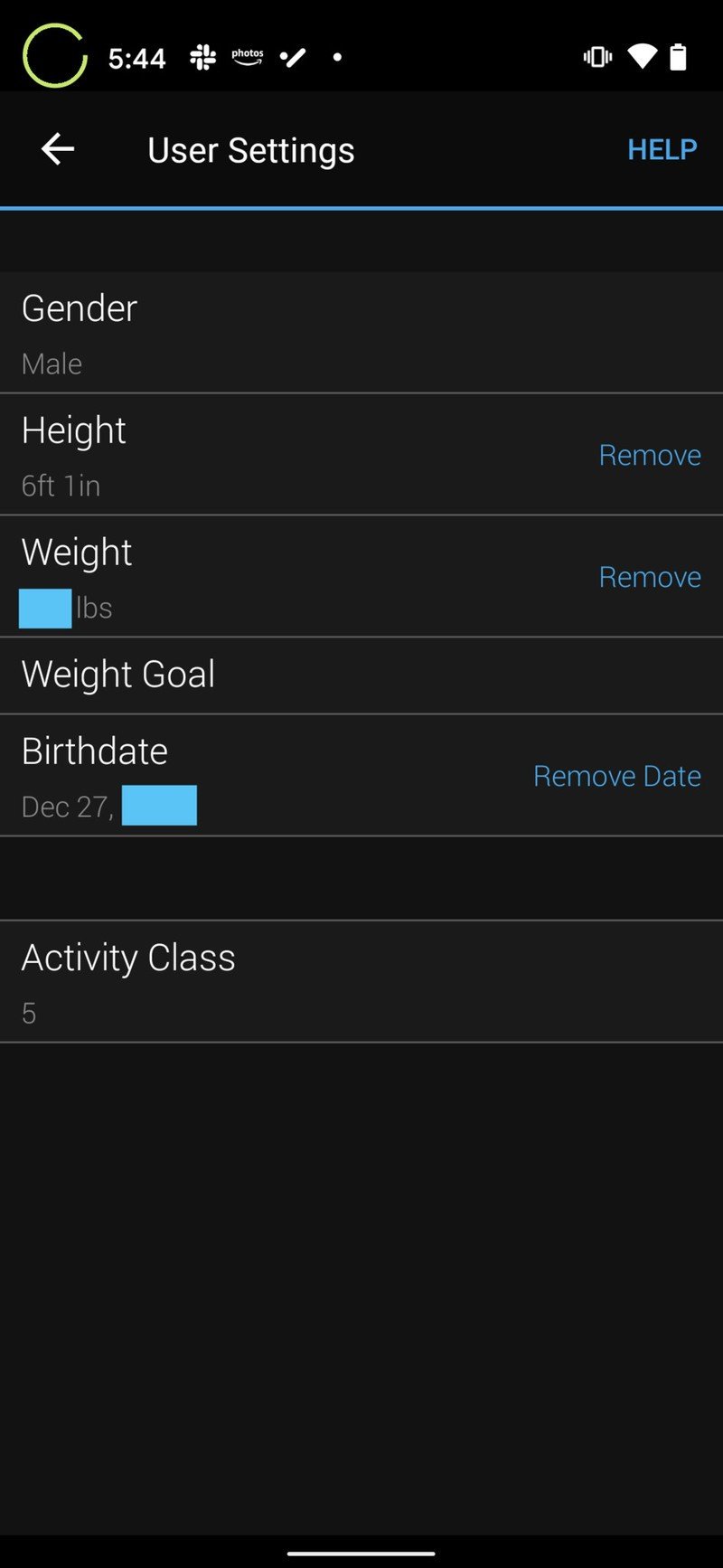
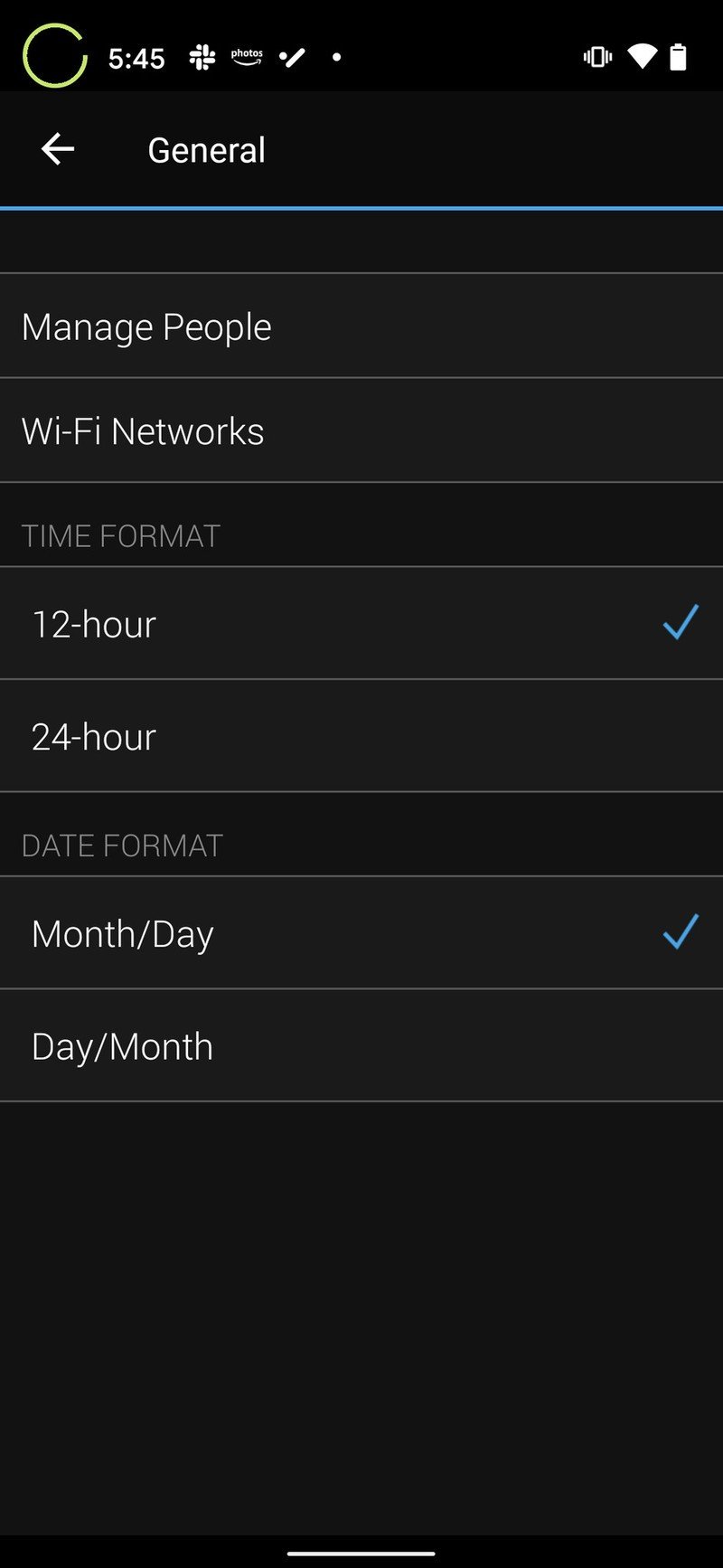
The other major upgrade for me from the Fitbit to the Garmin Index S2 was just how many modes and metrics the Index S2 could measure. The scale lets you monitor not only your weight and BMI but also your body fat percentage, body water percentage, skeletal muscle mass, bone mass, and your weight trends over time. The colorized display is capable of showing you multiple metrics at once, as well as the weather (so you know what to wear for the day!).
As an Android nerd, I also love that Garmin allows me to customize the metrics that I want to see on the scale's display and in the app summary through the Widgets setting in the device section of the Garmin Connect app. And once you get the display just the way you want it, you can pull the data into Google Fit or Apple Health, depending on which phones you and your family are using. This makes it an ideal scale for multi-device households. Indeed, the Index S2 can register and record data for up to 16 people, so chances are your entire family (maybe even your extended family) can get a lot of use out of this device. That kind of functionality definitely helps to justify its higher price tag.
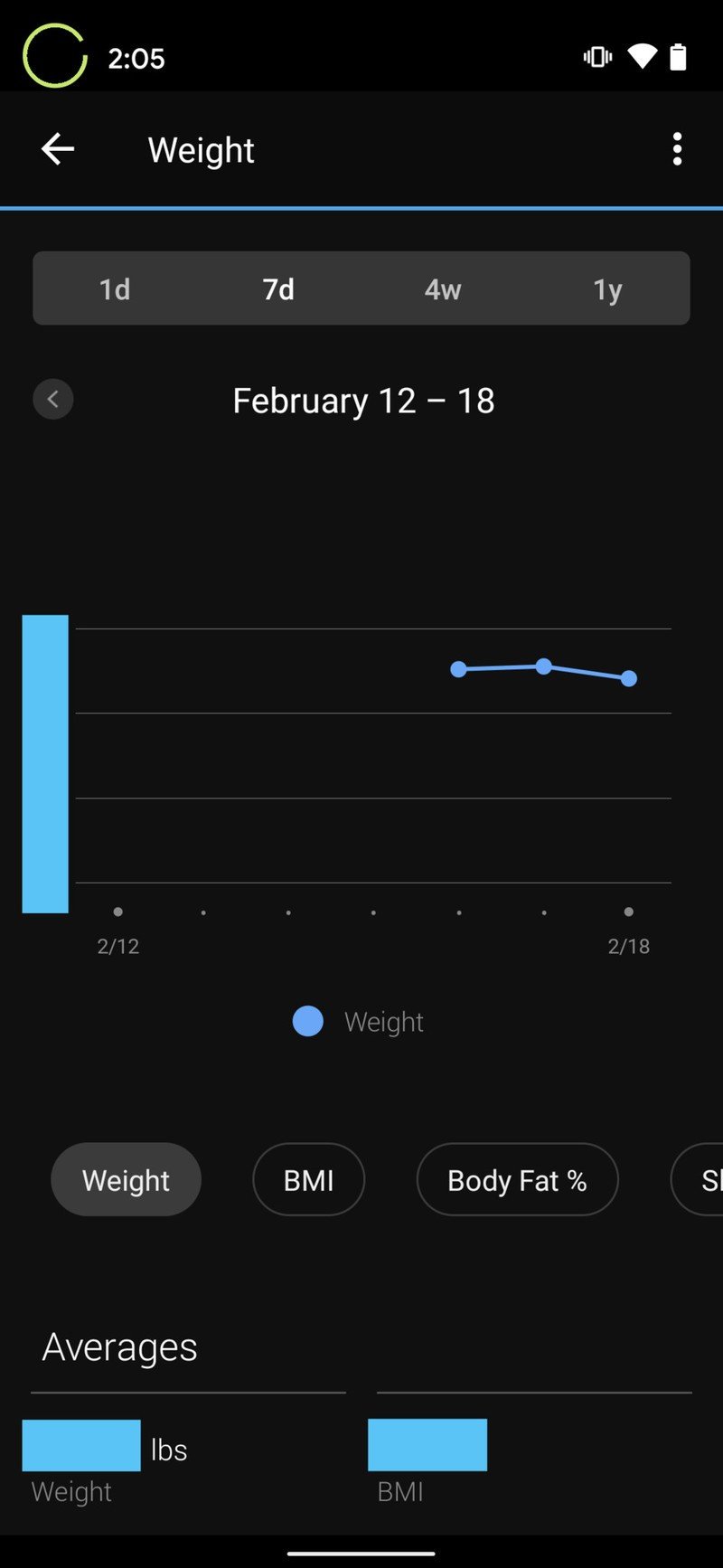
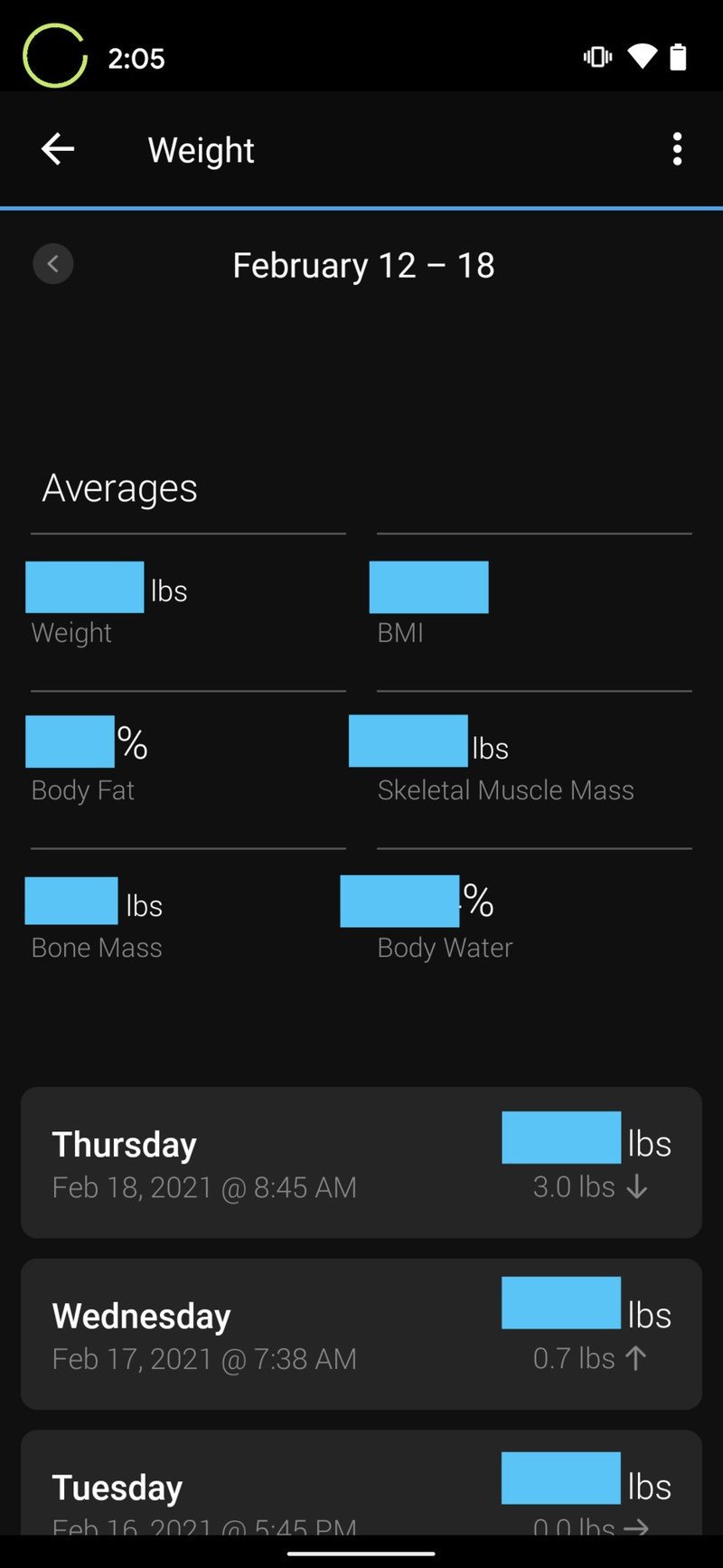
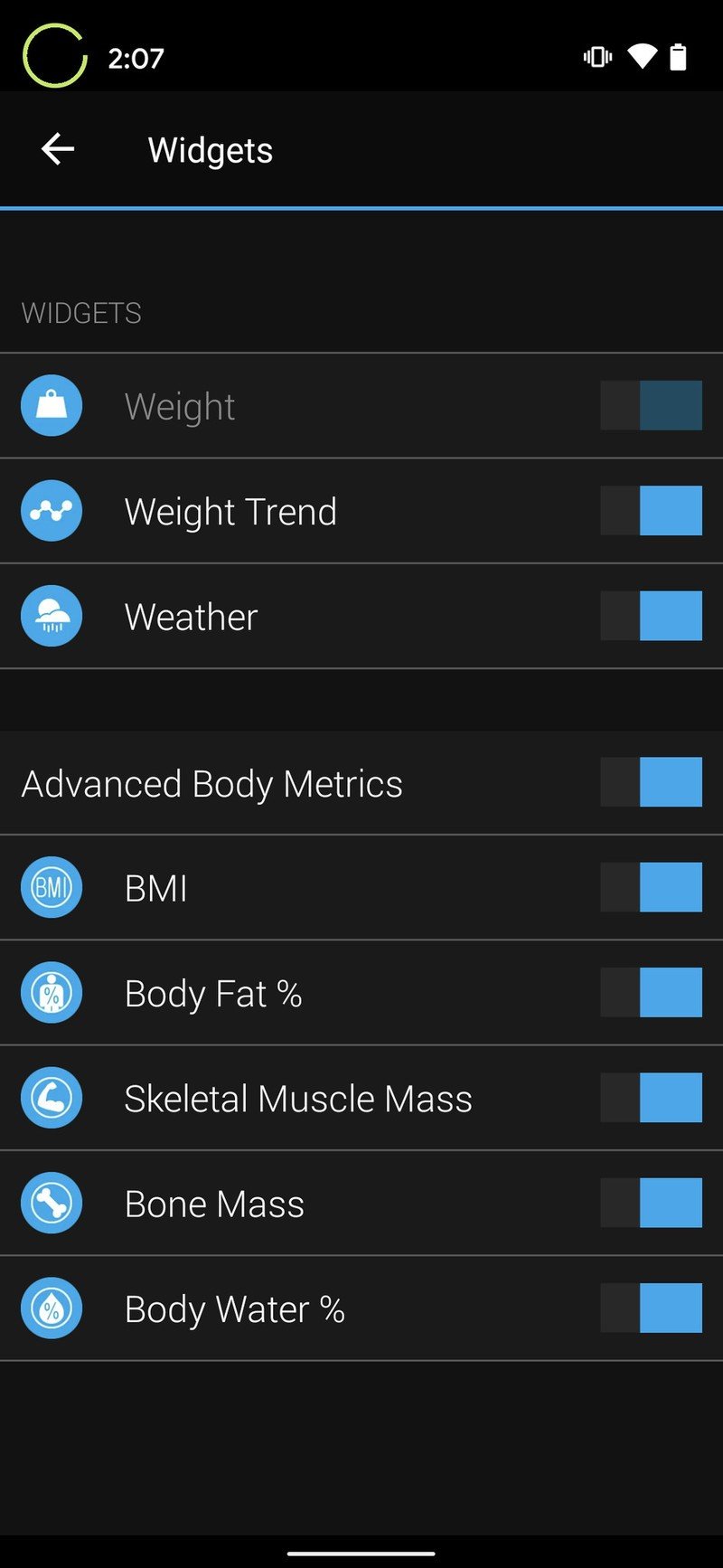
Source: Android Central
Sticker shock
Garmin Index S2 Smart Scale: What I don't like
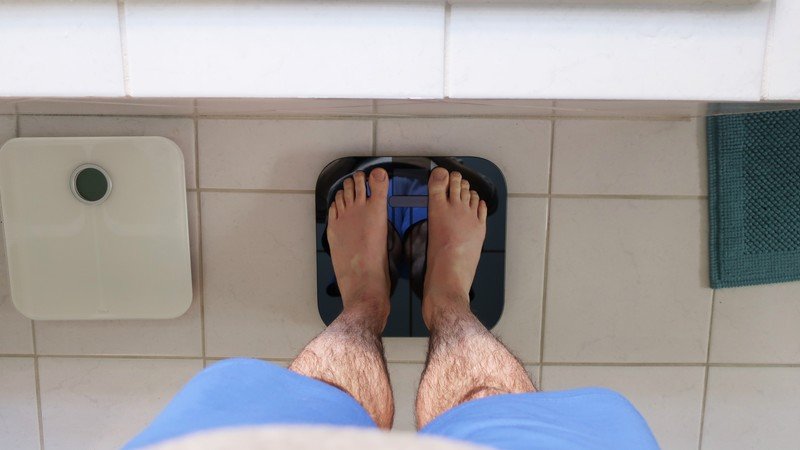
There's not much negative to say about the Garmin Index S2, in my opinion. It's a well-made device that offers tons of health insights and works flawlessly with the Garmin Connect app and suite of devices. However...
This is a really minor, ticky-tack complaint, to be sure, but the black version of the Index S2 is super fingerprint-y, or rather, footprint-y. I know that's a cosmetic detail, but the simple fact is that you're likely to be barefoot when using this device. Actually, you'll need to be barefoot in order to get a holistic view of your health, as the scale's sensors can't measure things like body composition when your socks or shoes are on. Plus, if you're sharing the device with roommates or family members, you're going to be seeing a lot of foot smudges—just something to keep in mind in your (hopefully) pristine bathroom.
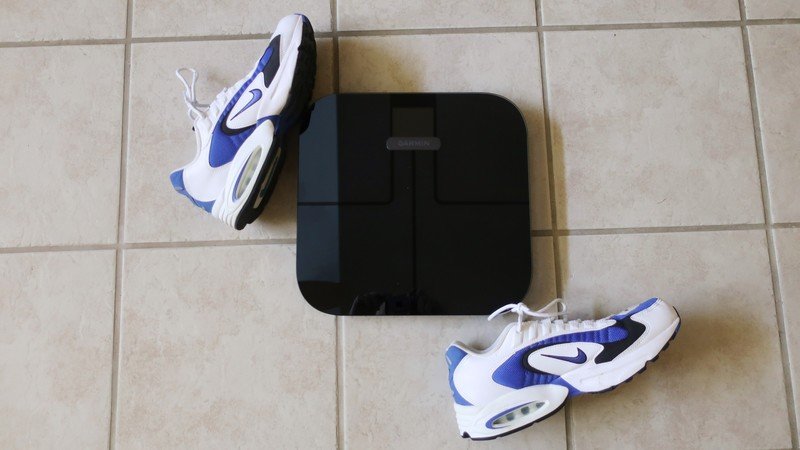
While the Index S2 can feed data into platform health data congregation apps like Google Fit and Apple Health, it works best within the Garmin Connect app and ecosystem. This means that if you're wearing a Fitbit or Samsung watch, you'll still need to install Garmin's app and connect it to that from your phone OS manufacturer, rather than having all of your data in one seamless app experience.
If you've done any research into the smart scale market, you've probably figured out that you can get a lot of what the Index S2 offers from competitors for significantly less money. How much less, and from which competitors? Well, I'm glad you asked. Let's take a look at some of the competition.
The competition
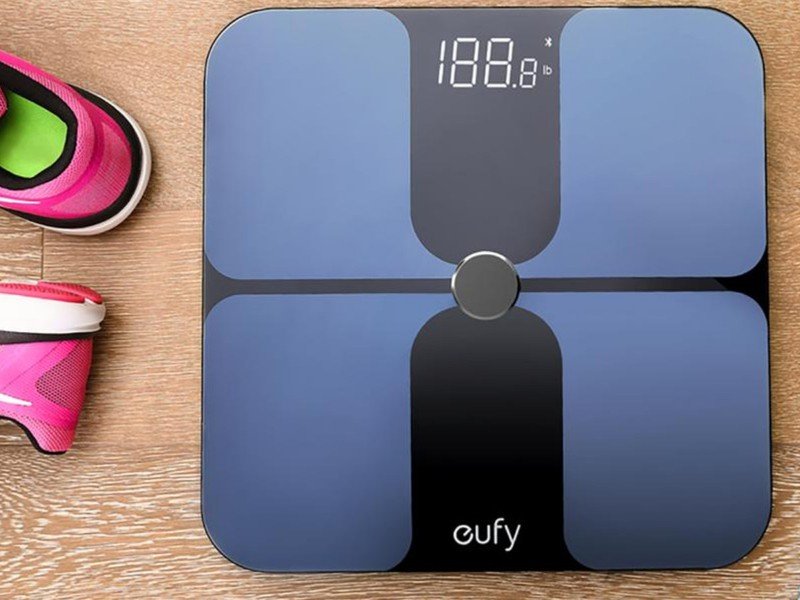
Our current recommended smart scale champ is the Eufy Smart Scale P1. This gadget can track just about as many metrics as the Garmin Index S2 but comes with a much more affordable price. The major downside here is that the scale lacks Wi-Fi connectivity.
Withings is well-known for its medical-grade devices, and the Withings Body+ is the perfect home extension of that mindset. It can track a ton of health metrics and even allows you to track pregnancy stats and your baby's weight. It works with Alexa, but it's one of the more expensive options on this list. Still, it's substantially cheaper than the Garmin Index S2.
While we've been a fan of the Fitbit Aria Air, the product is no longer listed on Fitbit's website, and it may be hard to find through third-party retailers at this time. It's also a bit older and doesn't have all of the fancy sensors as the Garmin Index S2; it just measures weight and BMI. Nevertheless, it integrates seamlessly with the Fitbit app and ecosystem, so it's a great choice if that's where you live. In fact, I've been using one for the better part of three years now.
Finally, I thought it was worth a mention to include one of the latest smart home products from Wyze — the Wyze Scale. As with most Wyze products, the Wyze Scale is insanely affordable and measures all kinds of biometric data like body fat %, heart rate, lean body mass, visceral fat, and even protein levels. You can pick up a Wyze Scale for around $20-$30.
Garmin Index S2 Smart Scale: Should you buy
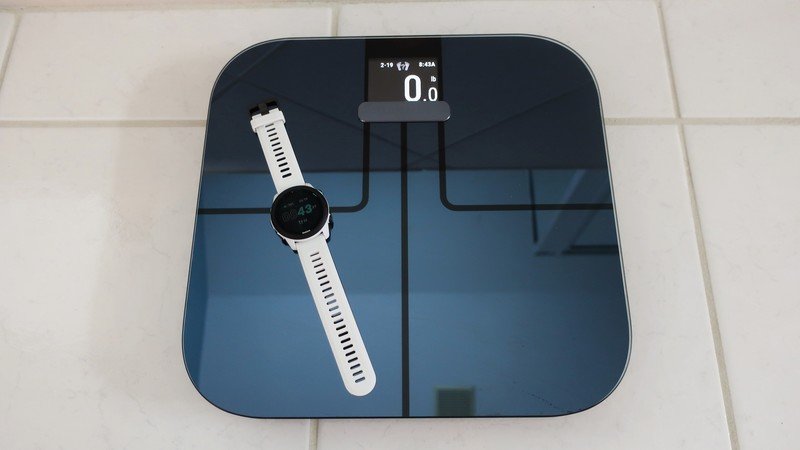
You should buy this if ...
- You want a plethora of body health metrics to analyze
- You are a fitness buff (or want to become one)
- You are already in the Garmin ecosystem
You should not buy this if ...
- You're looking for the most affordable smart scale
- You are a heavy Fitbit user
Overall, I came away extremely impressed with the Garmin Index S2. Even if I don't totally understand all of the metrics it measures, I am grateful that they are available. More than that, the data presented has me even more interested in continuing my fitness journey because I want to learn more about how things like my skeletal muscle mass, bone mass, body water percentage have to do with my weight gains and losses. For me, it's as much an educational tool as it is a fitness tool.
4.5 out of 5
As great a smart scale as the Index S2 is, you can get most (if not all) of its benefits from less expensive devices from Eufy, Wyze, and Withings — just to name a few. But if the $150 price tag isn't an obstacle for you, and particularly if you're already a Garmin fan, then you should be very happy adding this device to your home.

Jeramy was the Editor-in-Chief of Android Central. He is proud to help *Keep Austin Weird* and loves hiking in the hill country of central Texas with a breakfast taco in each hand.
